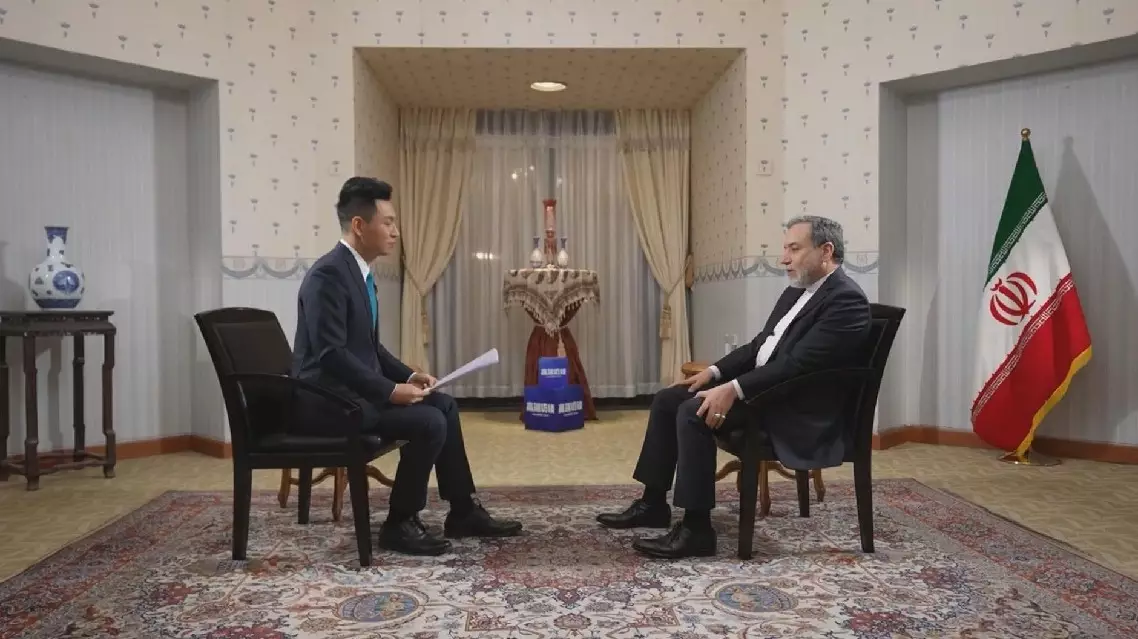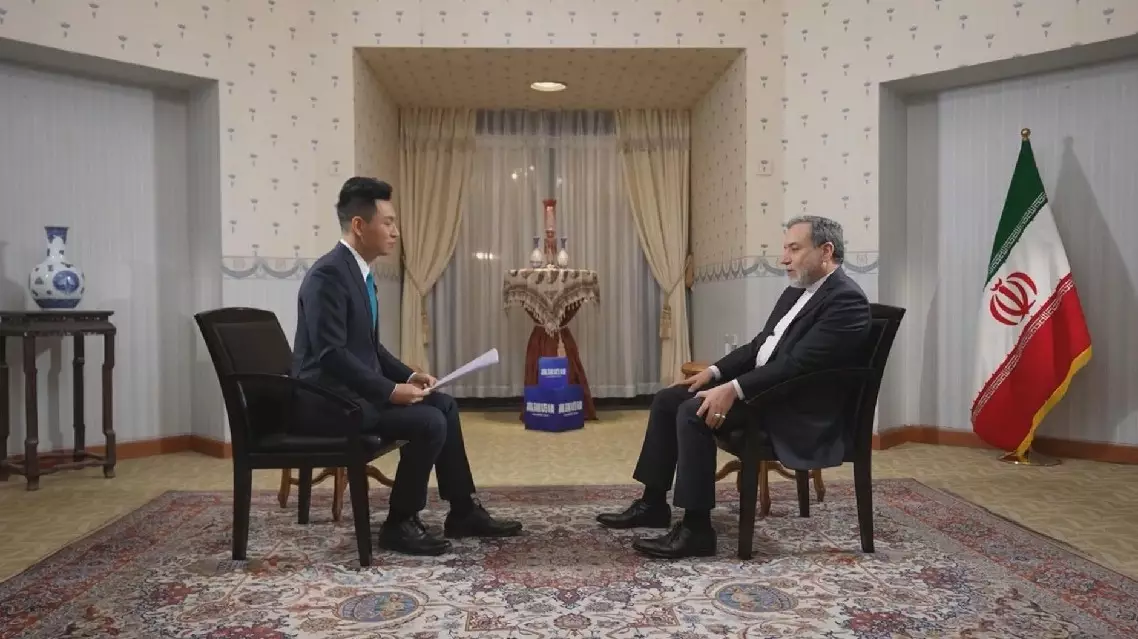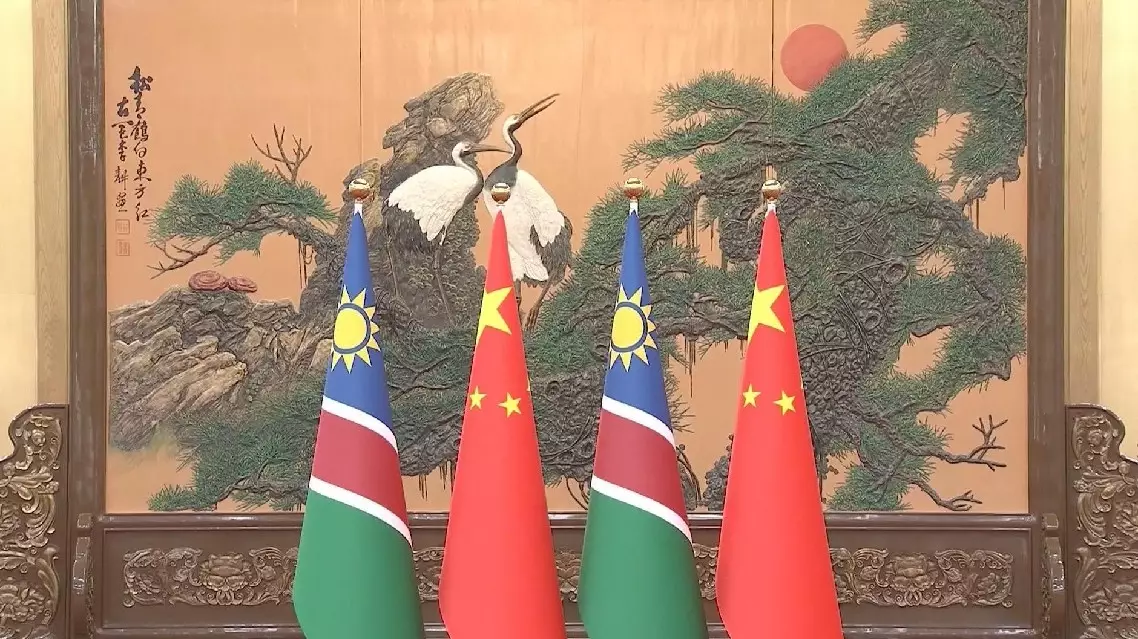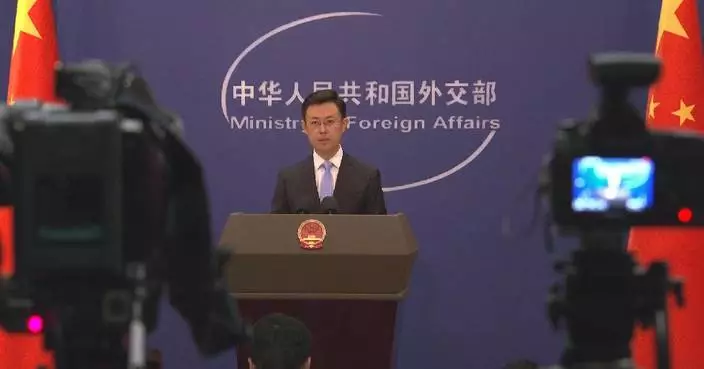Iran will work with other members of the BRICS and the Shanghai Cooperation Organization (SCO), both very important cooperation mechanisms with bright prospects, to achieve common goals and visions, said Iranian Foreign Minister Seyyed Abbas Araghchi in an interview with China Media Group.
Araghchi took the interview in Beijing on Dec 28, 2024, during his two-day visit to China.
BRICS is the acronym for an emerging-market cooperative mechanism that initially comprised Brazil, Russia, India, China and South Africa. It has now evolved into an influential international cooperation mechanism with an expanded membership.
Iran became a full member of the BRICS on Jan 1, 2024. Last October, Iran attended the BRICS summit in Kazan of Russia for the first time as a full member.
"I have seen very good visions in the BRICS cooperation mechanism. It has a broad prospect. I hope that goals can be achieved through collective cooperation among BRICS countries," Araghchi said.
The SCO, established in 2001, is a regional political, economic and security organization. Iran joined the SCO in 2023.
China has assumed the rotating presidency of the SCO for 2024-2025 and will host the 25th Meeting of the Council of Heads of State of the SCO.
Araghchi said Iran is looking forward to the summit and will contribute to the development of the bloc with its ideas.
"We believe that besides the BRICS, the SCO is also very important. Therefore, Iran applied to join the bloc. The 2025 SCO summit will be held in China, and our president Masoud Pezeshkian plans to attend the event. Iran has some very good ideas about the SCO, which can help it with some goals. Iran will work with the SCO to realize the vision of the bloc," Araghchi said.

Iran values cooperation within BRICS, SCO: Iranian FM

Iran values cooperation within BRICS, SCO: Iranian FM
An international relations analyst has underscored the role of China-Namibia ties in promoting the African country's national development, highlighting the potential for expanding trade, technology transfer, and infrastructure cooperation to address evolving development needs.
Chinese Foreign Minister Wang Yi is visiting Namibia, the Republic of the Congo, Chad and Nigeria on January 5-11. His first stop is Namibia.
China and Namibia have had a strong relationship since establishing diplomatic relations 34 years ago. Their ties are marked by mutual support, with China becoming Namibia's second-largest trading partner. Leading up to the southern African country's independence, China strongly supported the Namibian people in their struggle for liberation as the last country on the continent to decolonize.
The two countries established relations on March 22, 1990, the day after Namibia's independence. Over the years, the two sides have continued to bolster bilateral ties through a series of cooperative projects, with a particular focus on areas such as infrastructure, energy and natural resources.
Bilateral trade reached 1.4 billion U.S. dollars last year, and China accounts for about 30 percent of the total foreign direct investment in Namibia, official data showed.
"The trade has increased over the years, especially in terms of exports, [which] is mostly mineral resources. Namibia is rich in mineral resources including uranium, gold. And of late we have also seen the exporting of Namibian beef to China and also in the areas of fisheries," said Marius Kudumo, director of International Relations at the Namibia University of Science and Technology.
"But obviously there's a need of improving this relationship in terms of import [in] manufacturing items as well as technology related items. And we also have many Chinese citizens who are doing business in Namibia in the various areas, also big projects in terms of road construction and so on, there are Chinese companies that are involved," he said.
Along with economic development, China has supported Namibia in its social development, bringing tangible benefits to the Namibian people. China has completed several aid projects in Namibia, including well drilling, affordable housing, children's activity centers, rural schools, youth training centers, irrigation projects and aquaculture centers.
Kudumo noted that the bilateral relationship has evolved over decades, calling for more collaboration that aligns with Namibia's current national priorities, going above and beyond the independence movement that took off in the mid-20th century.
"The fact that Namibia is collaborating with China, there are also interests that Namibia wants to advance. These interests are not starting in the 60s, it's about political relations in the fight for liberation. After independence, it's about development, both human development, infrastructural development, development that are intended to improve the material conditions of people. So if China is involved in Namibia, it's to the extend contributing to what Namibia has identified as priority areas in national development," said the professor.

Expert calls for closer ties with China to drive Namibia's development











